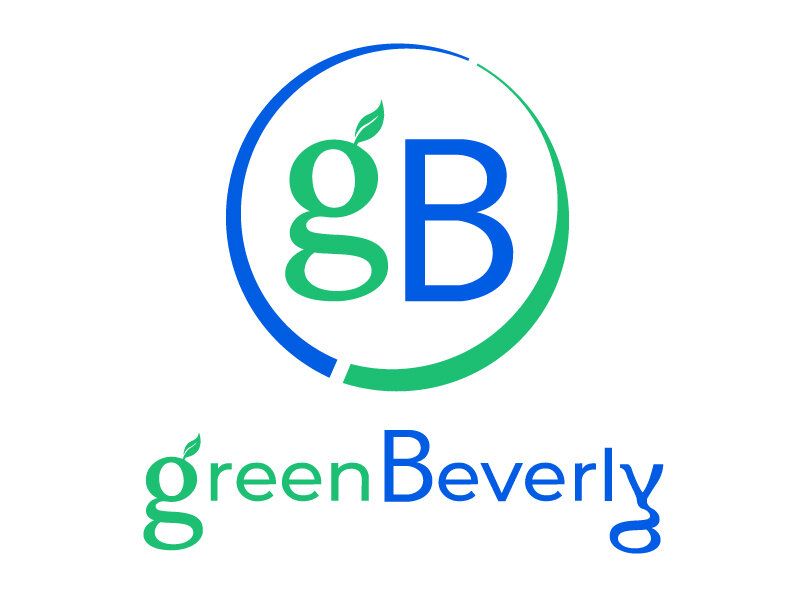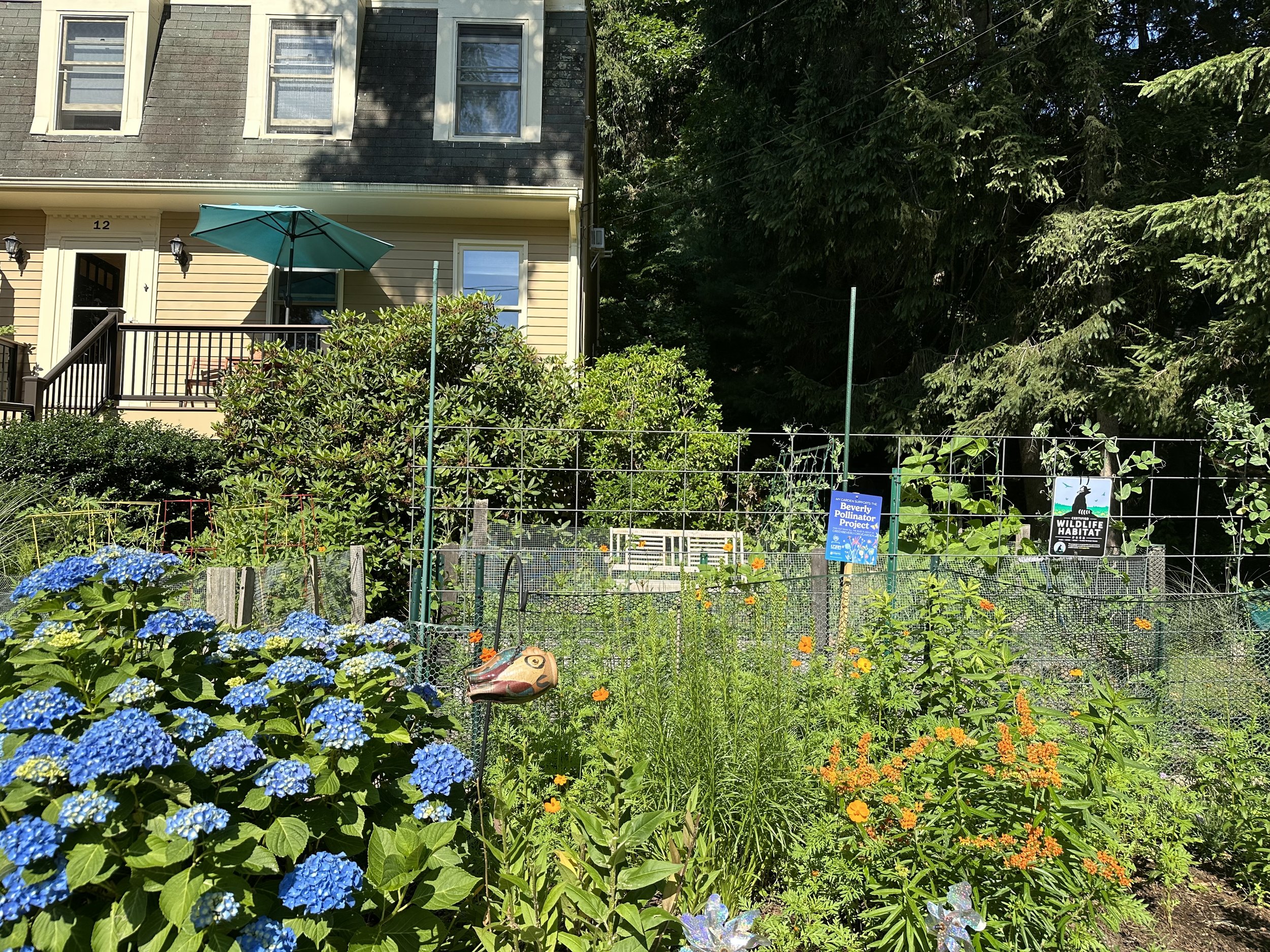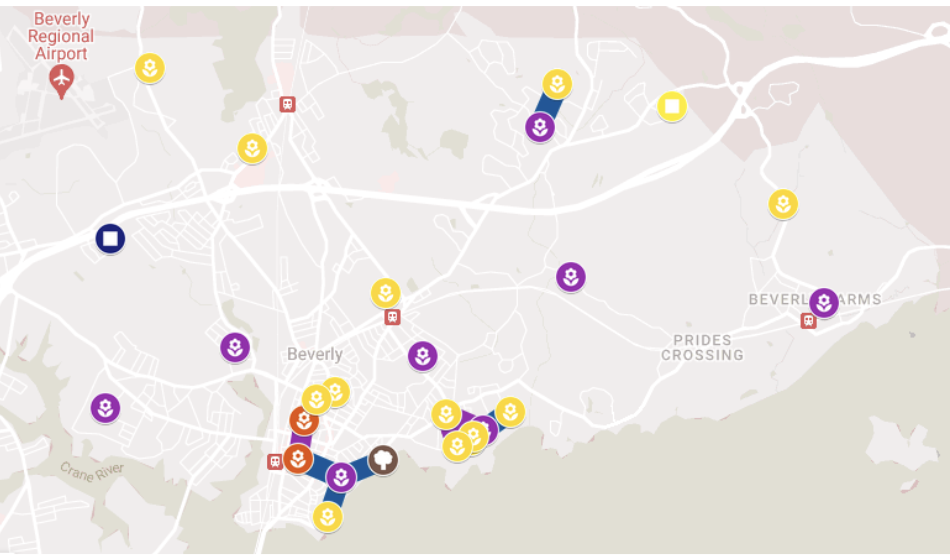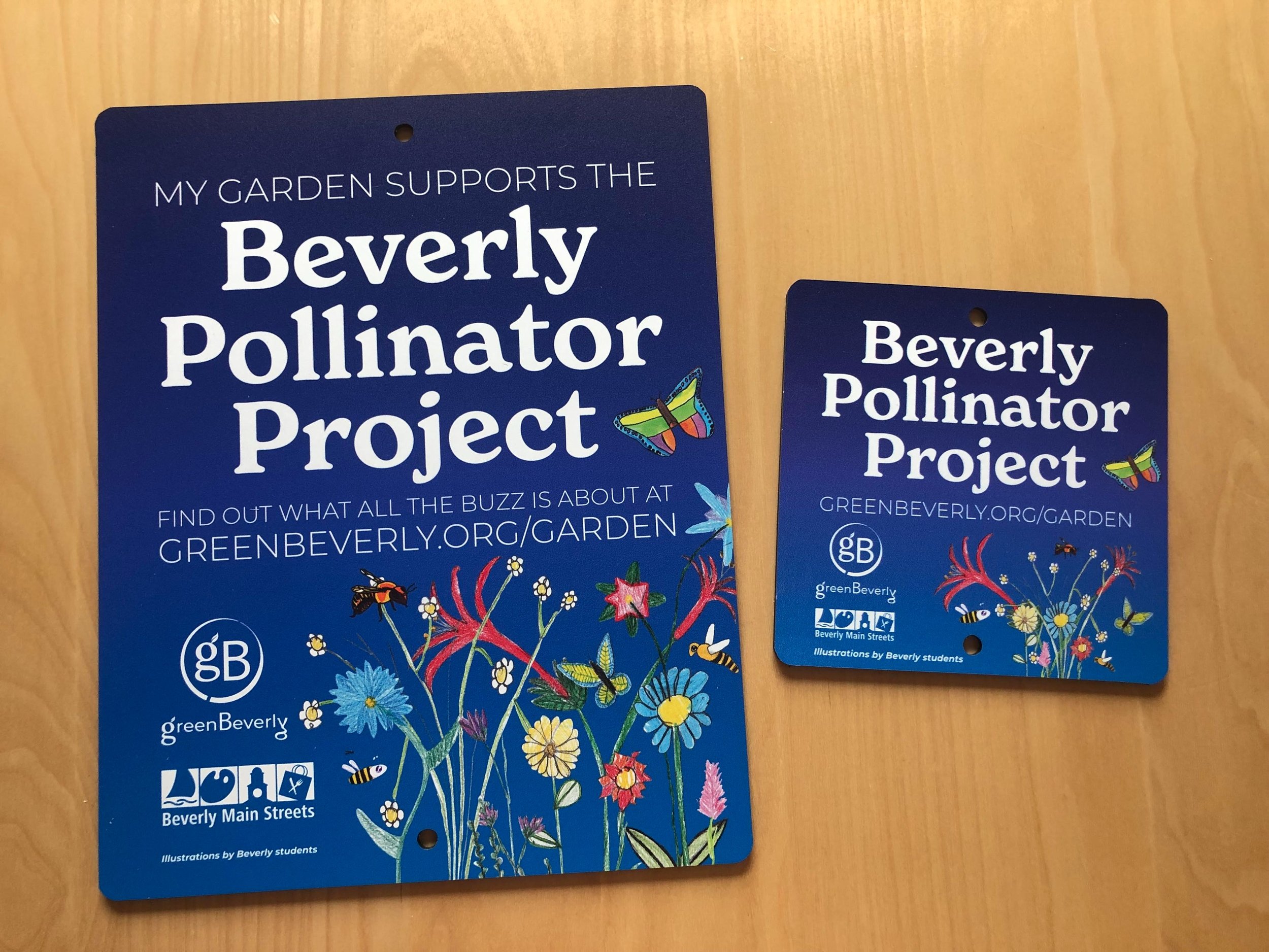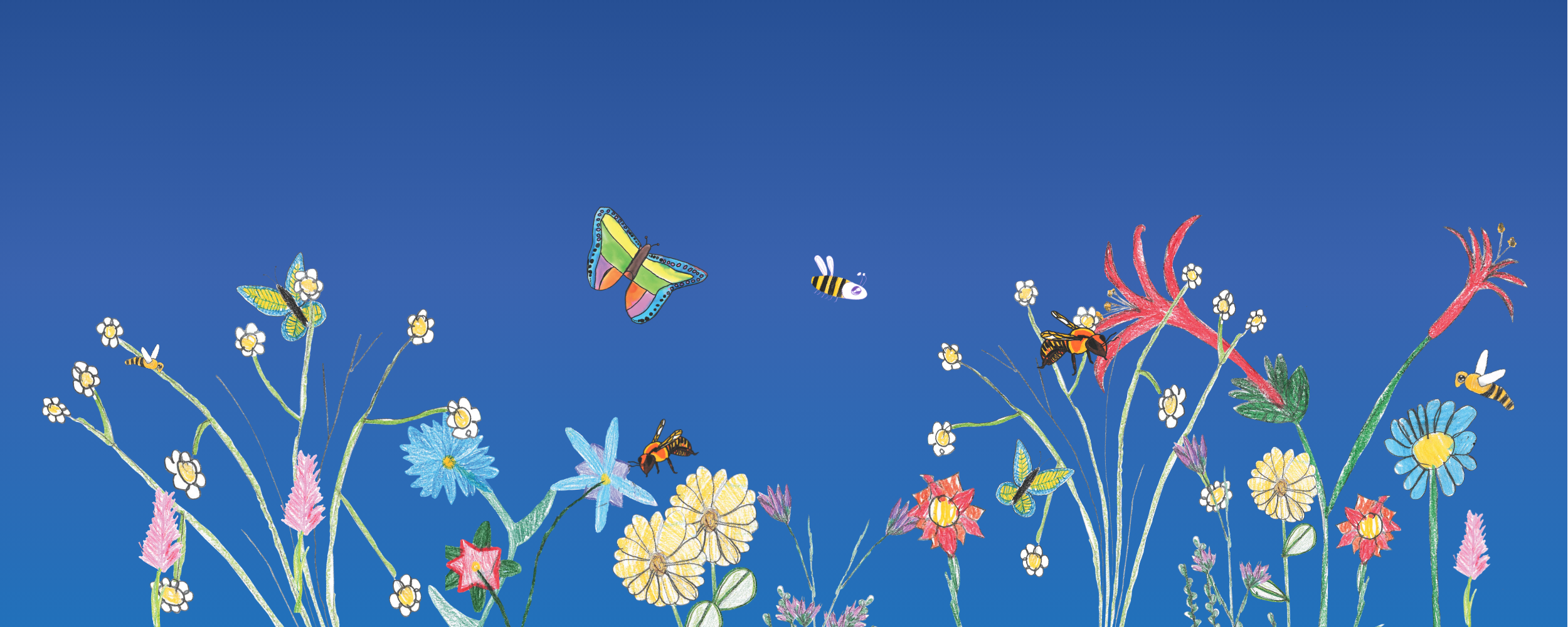
Garden Pollinator Project
Creating vibrant, native, pesticide-free gardens to help pollinators travel safely across Beverly
What’s new: Thanks to a generous private donation, over 200 pollinator starter kits have been distributed! Up next, we’re offering rebates for new native gardens and continuing to map gardens across Beverly to complete the network for our pollinators. We’ll also be sharing plenty of pollinator and pesticide education—and putting it into practice at our growing demonstration gardens.
Garden Rebate Program
Get rewarded for planting bigger, better native gardens.
Want to go big? We’re offering up to $500 in rebates for new pollinator gardens that meet our size and native plant criteria.
Check eligibility and apply before the end of October, 2025.
Pollinator Kit Giveaway
Free kits to start more native pollinator gardens!
Thanks to your interest and support, on May 17/18 we gave away 200 pollinator garden kits — each with four native plants and a snazzy yard sign to spread the word about our project.
See highlights from our giveaway events and learn more about the plants in the kit.
The Beverly Pollinator Pathway Map
Track the gardens. Complete the network.
Our interactive map tracks the locations of gardens filled with native plants and (based on how far different bees can travel) highlights the network of pathways for safer pollinator travel. Use the forms linked below to add your garden, explore others, and help us reach our goal of 300 medium-sized gardens to reduce “range anxiety” for our pollinators.
Get on the map:
Showcase your support for pollinators with a garden sign!
We collaborated with Beverly Main Streets and local student illustrators to create custom signs for the City of Beverly.
Native Pollinator Demonstration Gardens
Flagship spaces filled with native pollinator plantings for beauty, learning, and inspiration.
Dane Street Beach Garden
93 Lothrop Street, Beverly MA
Originally installed by Green Beverly and NOFA, this demonstration garden (located around the flagpole) showcases a variety of native pollinator plantings for the many visitors enjoying our popular Dane Street Beach.
Volunteers are needed for weekly watering and some weeding events. Interested? Sign up here.
Cove Community Center Garden
19 E Corning Street, Beverly MA
We’re planting a large native demonstration garden at the Beverly Cove Community Center. It will serve as an educational space, community hub, and living example of what’s possible with native plants.
Help is needed as we get started. Join a volunteer work day.
Pollinator Education and Action
Knowledge grows action.
Pollinators are more than just bees. Moths, wasps, butterflies, birds, flies, beetles, and even ants and slugs do the job as well. We’re spreading awareness about the importance of native pollinators, incorporating native plantings into our gardens, and the harms of pesticides and herbicides (aka the ’cides).
Keep an eye out for a series of workshops in 2025 (volunteers and suggestions welcome!). In the meantime, read on for resources and steps to incorporate pollinator-friendly practices on your property.
Take action:
Along with other sustainable lawn and garden practices, plant pollinator plants—specifically “native” pollinator plants (see below for a list of plants in our area).
Don’t use pesticides (see why below)
Leave material for pollinators to nest in like dead trees or snags (learn more about this practice from the Xerces Society)
Remember to add your garden to our pollinator pathway map!
Which native plants should I use in our area?
The Massachusetts Department of Agriculture has developed a list of native pollinator-friendly plants that are commonly found in local nurseries. An online searchable version of the list is available here.
It should be noted that the above list is not exhaustive. Another good list, with a few different species, is this one for perennials from Grow Native Mass. They also have this separate list for native shrubs and trees.
If in doubt, Google "[plant name] native range" (I.e., geranium maculatum native range) and find the native map (example here) to see if it's suitable.
Where can I buy native plants locally?
There are multiple boutique nurseries that offer a broad range of native plants perfect for our region.
The most well known and with the broadest selection is The Monarch Gardener in Topsfield (see her full availability list).
There is a new nursery, North Shore Natives, attached to the Garden School in Beverly (6 Standley St) that has a great selection of native plants & vegetable starts.
Solid Ground Gardens is another great independent nursery in South Hamilton with a wide selection of vegetable starts, herbs, annual flowers, & some natives. You won't find as wide a range of true natives here, but there are always a few to be found including some interesting trees and shrubs.
Oakhaven Sanctuary is a little further afield (North Reading) but with a great selection of very reasonably priced native plants. The owner, Walter Kittredge, is a renowned botanist and has curated a wonderful selection that's worth the trip.
Some of the larger garden centers with native plants include Corliss Brother's in Ipswich and Wolf Hill (one in Gloucester, one in Ipswich)
Why should we all avoid using pesticides?
Pesticides—including insecticides, herbicides, and fungicides—can harm more than their intended targets and create a vicious cycle of dependence on chemicals. When applied to yards, they often impact pollinators like bees and butterflies, as well as birds, amphibians, beneficial insects, and even humans.
Many of these chemicals persist in soil and water, disrupting local ecosystems. Insecticides can interfere with pollinator behavior and reproduction, while herbicides reduce flowering plants that provide food sources.
Pesticides can also reduce natural pest predators, leading to an increased reliance on chemical control. By avoiding pesticides and supporting native plants and beneficial insects, homeowners can help create healthier, more resilient habitats.
To read more, The Xerces Society has helpful reading such as this great "FAQ on Pesticide Use," "Understanding Pesticides and Their Risks," and "Rethinking Pesticide Use..."
Who are pollinators, and why should we help them?
Pollinators include birds (especially hummingbirds), bats, bees (native bees and honey bees), wasps, butterflies, moths, flies, beetles, and other small mammals that travel from plant to plant carrying pollen on their bodies.
Plants need the pollinators to help them grow and many of the foods that we enjoy come from plants that need pollination!
According to the Pollinator Partnership:
Somewhere between 75% and 95% [1] of all flowering plants on the earth need help with pollination – they need pollinators. Pollinators provide pollination services to over 180,000 different plant species and more than 1200 crops. That means that 1 out of every three bites of food you eat is there because of pollinators [2,3]. If we want to talk dollars and cents, pollinators add 217 billion dollars to the global economy [4,5], and honey bees alone are responsible for between 1.2 and 5.4 billion dollars in agricultural productivity in the United States [6]. In addition to the food that we eat, pollinators support healthy ecosystems that clean the air, stabilize soils, protect from severe weather, and support other wildlife [7].
The Audubon also explains:
Many species of pollinators are experiencing dramatic declines. Populations of native bees and other pollinators are threatened by climate change, pesticide exposure, habitat degradation and agricultural intensification, declining populations of native flowering plants, and introduced pathogens.
Read this article to catch a glimpse of the problem and how we can be part of the solution.
Where can I learn more about pollinators?
Massachusetts organizations that talk about pollinators:
National organizations that talk about pollinators:
